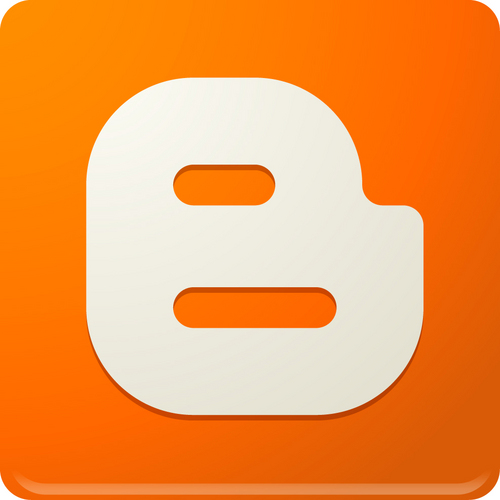Keyword Research 101: How to Choose The Best Tags & Keywords For Your Blog Posts – And Why This Matters
Previously we talked about keywords, specifically What Are Keywords And Why Do They Matter?“. Today we’re talking about how to choose the best tags and keywords for your articles and why this matters. Do you know what the “best” keywords and tags are and how do use them to get seen in search engines (Google, Bing, Ask.com, etc)? We’ll show you.First, what’s the difference between Keywords and Tags?
There really isn’t a difference. Simply put, the keywords that you enter at the bottom of your article or blog post in WordPress are called tags. So for the purpose of this article we’re going to use them interchangeably.What are the “Best Keywords and Tags?”
The tags for an article are the few words that best describe what your article (or blog post) is about. Ideally there are 5-10 keywords that specifically tie into your post.A word of warning: these keywords have to be topics that actually relate to your article. You can’t just throw in random keywords that you think will get you noticed on search engines, as that will backfire on you. That’s called keyword spamming and it’s a one way ticket to nowheresville, population: you and your blog that no one will go to.
What are the some examples of the Best Keywords and tags?
Let’s say you had a post on your blog entitled “How to get a hot date online!” Some keywords you might use include as tags are: dating, online dating, online dating profile, get a date, get noticed online. See how those actually relate to the article we’re talking about? That’s the idea. Your job of course is to find the ones that best reflect your article AND get the most search traffic, but more on that coming up.Also there’s no need to post 50-100 keyword tags. In fact, that’s not going to help you at all. Less is usually more, and the keyword realm is no different. Be honest about what your article is about and you’ll be much more likely to get noticed in search engines.
WordPress “tag pages” are great for SEO
A lot of people don’t know this, but one of the (many) great things about WordPress is that for each tag you add to an article, WordPress creates a tag page. And that tag page will link to all articles tagged with that keyword. So all articles tagged with the keyword “dating” will be linked from the “dating” tag page on your blog.Tag pages are important from an SEO perspective, because they can rank really well in search engines. Tagging your posts well will help you climb the keyword mountain faster and you’ll get noticed in the search engines and gradually move your way up in search rankings for those keywords.
Again, this is assuming you are tagging your posts accurately: if you add bogus keywords as tags, then your “tag pages” will be full of spam, i.e. non-related junk, and they will NOT help you get better search engine rankings.
Categories are not keyword tags – don’t use them interchangeably
Tags are just the natural evolution of the old category concept. Whereas years ago you had to choose 1 or 2 pre-defined categories when writing an article, these days it’s easy to just add the 5 to 10 tags, which are the topics the article is really about.“But what about categories”, you ask? Well, for the moment you will still need them as well. We strongly recommend that you choose a single category that your article best fits into – in addition to the tags. For example, on Ask Dan & Jennifer, our 3 top-level categories are “sex“, “love“, and “dating“. Each new article is filed in one of these top-level categories, and then we add the appropriate tags to it.
We use major keywords as categories for better search engine rankings, because just like with tags, WordPress creates a category page which links to all the articles in that category. But you still need to tag your articles appropriately.
Use the same form of keywords and tags from one post to the next
As far as Google is concerned, the following keyword tags are completely different: “website” and “web site” and “websites”.You need to be aware that those are completely different keywords and be consistent in the way you tag your articles. There’s nothing wrong with either keyword, but choosing one form and using it that way consistently increases your chances of getting ranked for that form of the keyword. So pick one and stick with it. Either you always use “website” as your tag or you use “web site”. Don’t use both interchangeably or you’ll be missing the chance for better rankings and more traffic.
Do your Keyword Research to determine with keywords get the most search engine traffic
“Website” and “web site” are perfectly valid keywords (tags), but we’ve also mentioned that search engines regard them as two completely different keyword tags.But did you also know that each one generates an entirely different amount of search engine traffic? Well, you do now. Fact is that not all keywords are created equal. Obviously if you are building your audience for your website, you want to only have the most effective keywords possible.
How do you that? Keyword research. That means doing your homework and looking up the number of searches each version of a keyword gets.
Doing your keyword research is crucial to have the most effective keyword tags on your blog, and it’s literally the ONLY way you will learn which keywords and tags are the most effective for you and your blog. It’s a bit time-consuming and tedious, but if you’re starting a blog you really need to start thinking of it as a business and more importantly as YOUR business. Treat it as if it is your full-time job, because well, it is and who else is going to research keywords and tags for you? That’s right. Nobody.
And here’s great news about keyword research: these results are fairly consistent from day-to-day. So you just need to do it once and save your findings in a spreadsheet – that’s what we do. Sure you’ll find yourself updating this keyword research spreadsheet now and then, but you won’t have to duplicate your work every time.
Keyword research tools – how to find the right keywords to use.
Here is a great keyword tool for you to check it. It can take a little getting used to, at first. But once you play with them a little bit they get easier to use, and it really helps to know as much about your niche as possible. That way you can hone in on the words that your audience are mostly likely to use to try and find the kind of content you have to offer online.- SEO Book Keyword Research Tool – free keyword research option.
Do your keyword research now and it will set you up for long-term success
Fact of the matter is that most people do the research too late after they’ve already made up their own keywords and find out they don’t work as well as others would have. But why do that? Why waste all that time (and potentially money) when you can simply do the keyword research NOW and get started on the right foot? It’s much easier to start off on the right foot than it is to get off to a slow start and get stuck in bad habits and then try to correct them. Do the keyword research now and start yourself off with the best tag habits possible and you won’t need to correct them later.This is a very technical article, with a lot of information. It’s unrealistic to expect to assimilate all of it at once. We highly recommend that you read it several times to make the most of all the keyword and tag information above. Then, after you’ve done that, go out there and make the magic happen!
www.mik1111.blogspot.com --- www.mik111.wordpress.com








 0 التعليقات
0 التعليقات